Perimenopause is the transitional phase leading up to menopause. During this time, your body gradually produces less oestrogen and progesterone, causing various physical and emotional changes.
Women experiencing perimenopause may experience irregular periods, hot flushes, night sweats, sleep disturbances, changes in libido and even mood swings and irritability. Emotional changes can be common, including increased anxiety, depression, or difficulty concentrating.
Perimenopause can last several years, with symptoms varying in intensity and duration for each individual.
Luckily, there is hope! Ashwagandha can provide significant relief for women going through menopause and perimenopause. Let’s take a look at ashwagandha’s impact during perimenopause and beyond.
Understanding Ashwagandha and Its Role in Menopause Relief
Ashwagandha is an adaptogenic herb that's been a cornerstone of Ayurvedic medicine for millennia. Grinding the dried root of the ashwagandha plant produces a versatile powder that is easily incorporated into beverages and consumed in various forms such as capsules, tablets, and liquid extracts. This method of consumption has been proven effective over centuries, hence its firm standing in today's society.
While Ashwagandha has been put to use for thousands of years, the modern world is only beginning to uncover its astounding potential.
Remarkably, Ashwagandha's diverse therapeutic properties and health benefits have far-reaching implications for both physical and mental health, including its potential role in providing menopause relief.
Ashwagandha's Role in Menopause Relief
Ashwagandha, a revered herbal wonder from the ancient medicinal world, has recently gained international fame for its potential role in aiding menopause relief. Women experiencing perimenopause often endure high stress and fatigue, alongside a fluctuation in hormones leading to distressing symptoms. Here, ashwagandha's adaptogenic properties come into play, helping balance hormone levels and thereby reducing the severity of menopausal symptoms.
Several article reviews and studies explore the efficacy and safety of ashwagandha root extract on climacteric symptoms associated with menopause. Remarkably, a significant improvement in the quality of life in terms of reduced physical, psychological, and urogenital symptoms was observed in a 2021 study. Women consuming 300 mg of Ashwagandha extract twice a day experienced a marked decrease in symptoms like hot flashes, sleep disturbances, and mood instability.
This opens up a promising avenue for women looking for natural remedies for menopause relief, particularly those unable to opt for hormone replacement therapy due to certain medical conditions.
The Science of Ashwagandha for Menopause Symptoms
Delving into the science of ashwagandha for menopause symptoms, we uncover the potential benefits of this ancient herb in managing climacteric symptoms in women during perimenopause. From hormonal balance to stress reduction, cognitive function enhancement, and combating oxidative stress, ashwagandha's potential effects are vast and varied:
Hormonal Balance and Hot Flashes
Hot flashes, a well-known climacteric symptom in women during perimenopause, can be reduced with regular ashwagandha intake. The adaptogenic properties of this herb help modulate hormone production, leading to a more stable hormonal balance.
Ashwagandha is beneficial not just for physical, but emotional health too. It aids in mood regulation which can prove pivotal during the menopause phase, prone to mood swings and anxiety.
Stress and Mood Management
With perimenopause comes an elevation in stress levels and mood disruptions.At its core, ashwagandha presents anti-stress properties. Numerous studies reveal the herb's potential in reducing cortisol, a pivotal stress hormone, thereby improving overall emotional wellbeing.
By mitigating anxiety and depression, ashwagandha could offer significant relief from the emotional challenges often associated with menopause.
Undeniably, exploring this integrative health option could lead to significant improvements in quality of life for perimenopausal women, reducing stress and promoting mental stability during this crucial life transition.
Cognitive Function and Sleep Quality
Menopause often brings about cognitive issues like forgetfulness and difficulty concentrating. Ashwagandha's antioxidants and neuroprotective properties may help improve mental clarity, especially during perimenopause.
Another concern for menopausal women are sleep disturbances, often caused by hot flashes and mood swings. Ashwagandha's adaptogenic properties may help alleviate these symptoms, leading to better sleep quality.
Studies suggest that taking 300 milligrams of ashwagandha root extract twice daily can improve sleep and mood in menopausal women. As research continues, ashwagandha may become a valuable tool in managing menopause symptoms.
Combating Oxidative Stress
Oxidative stress is linked to many menopausal symptoms. Ashwagandha's powerful antioxidants can reduce this stress and improve overall well-being.
Recent studies have shown that ashwagandha can reduce oxidative stress. This suggests it may improve the quality of life for menopausal women.
While ashwagandha is a promising natural remedy, it's important to consult with a healthcare professional before using it, especially for long-term conditions like perimenopause.
Ways of Consuming Ashwagandha for Menopause Relief
There are several ways to take ashwagandha, including taking teas, herbs, capsules or tinctures. For optimal results, consider combining ashwagandha with other complementary supplements like L-theanine and magnesium. These nutrients work synergistically to alleviate common menopausal symptoms:
- L-theanine: Promotes relaxation and reduces anxiety, often associated with perimenopause.
- Magnesium: Supports muscle and nerve function, helps regulate sleep, and can alleviate hot flashes.
Most people tolerate ashwagandha well, with minimal side effects, but if you have any underlying medical conditions or take chronic medication, it’s best to discuss starting any new supplement with your doctor.
By understanding the different consumption methods and potential synergistic benefits, you can harness the power of ashwagandha to support your overall well-being during this transitional phase.
The Bottom Line: Ashwagandha for Perimenopause
Ashwagandha has shown promising potential in alleviating perimenopausal symptoms. Its ability to balance hormones, reduce stress, and improve sleep quality can significantly enhance the quality of life for women going through this transitional phase.
EQUILIBRIUM is a premium ashwagandha stress relief supplement formulated to support a calm and balanced mind and body. Crafted with high-quality, organic ingredients like Ashwagandha KSM-66®, magnesium bisglycinate, lemon balm extract, and L-theanine, EQUILIBRIUM helps reduce stress, improve mood, and promote restful sleep. It's a natural solution for women undergoing perimenopause or menopause. Find your equilibrium today with Sentro Labs!





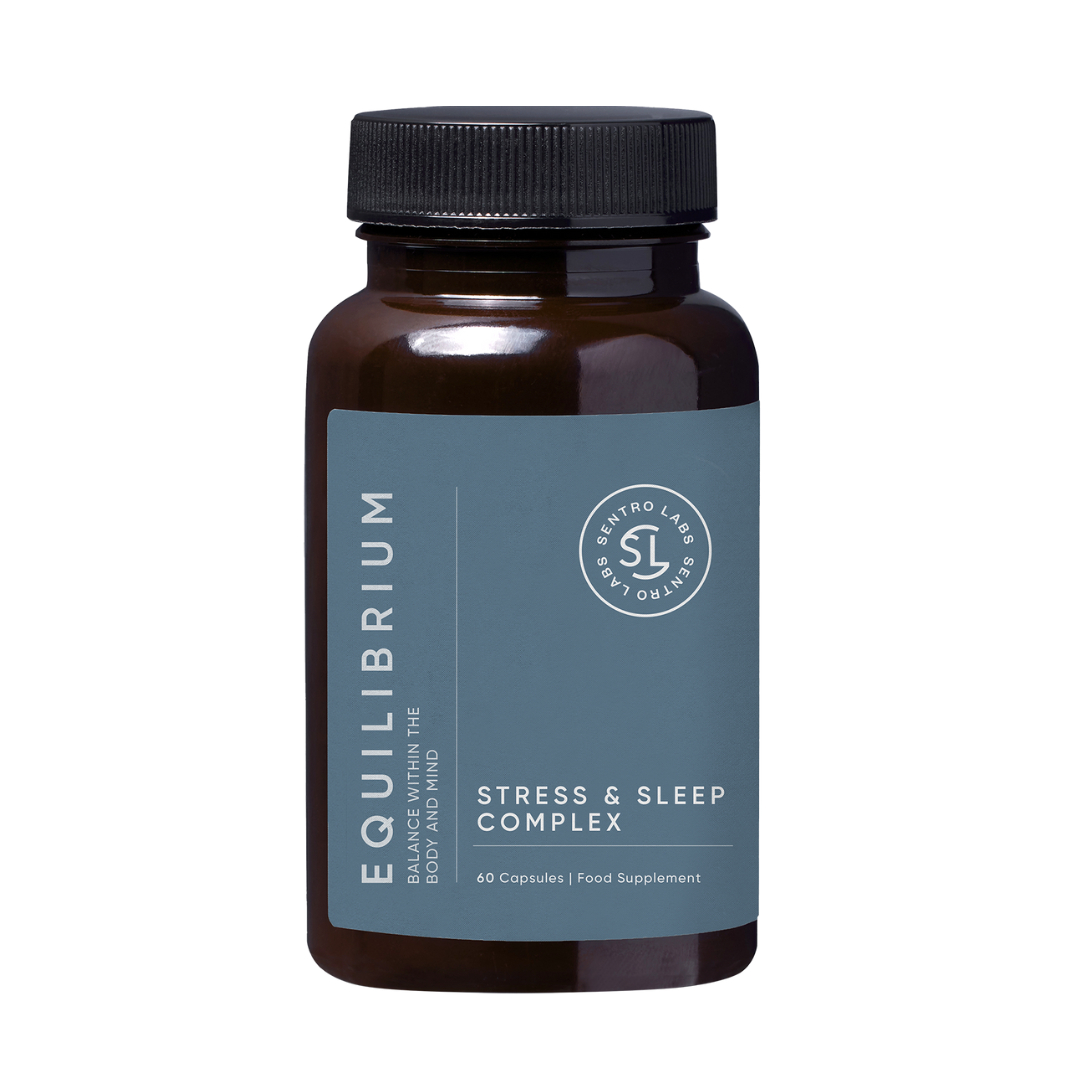
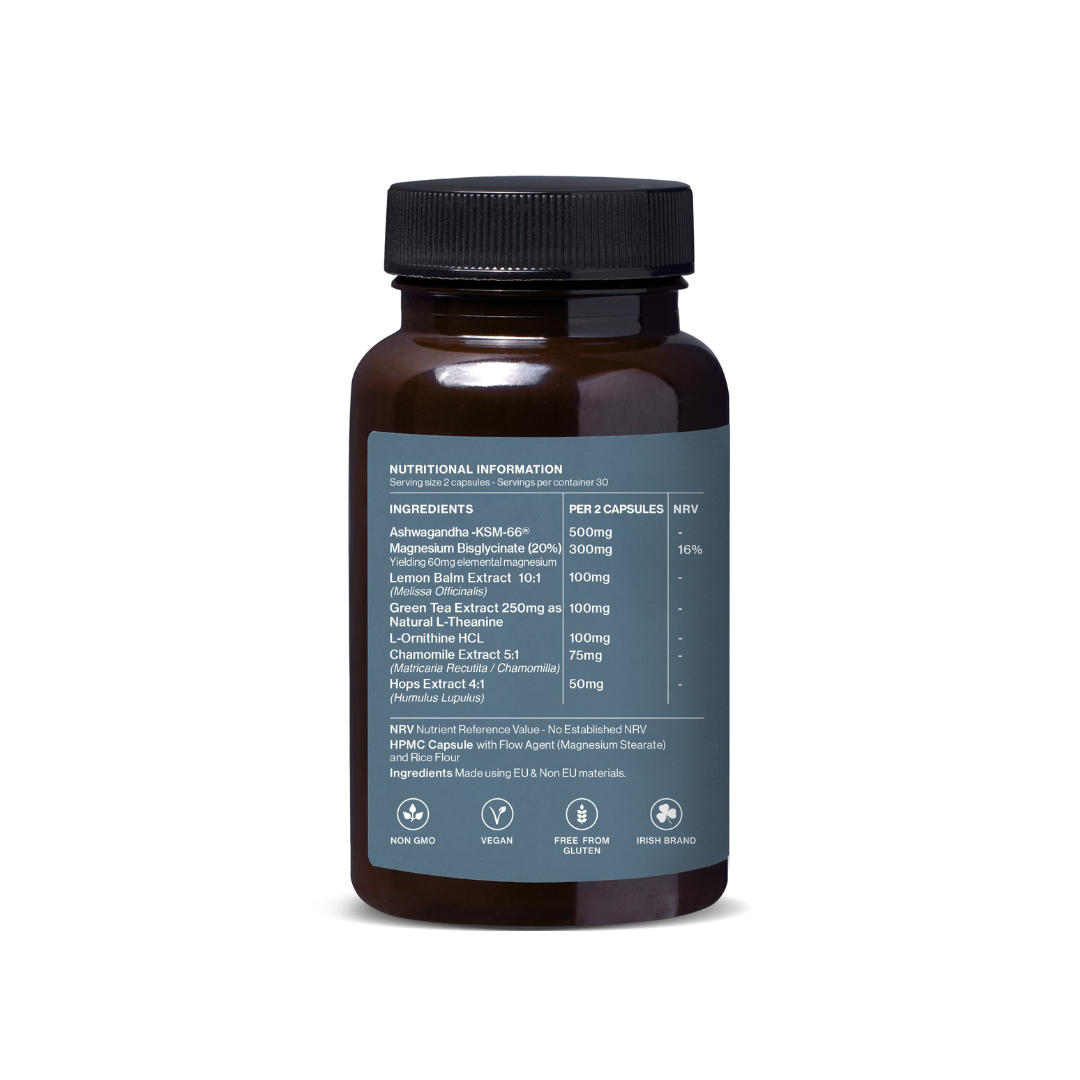

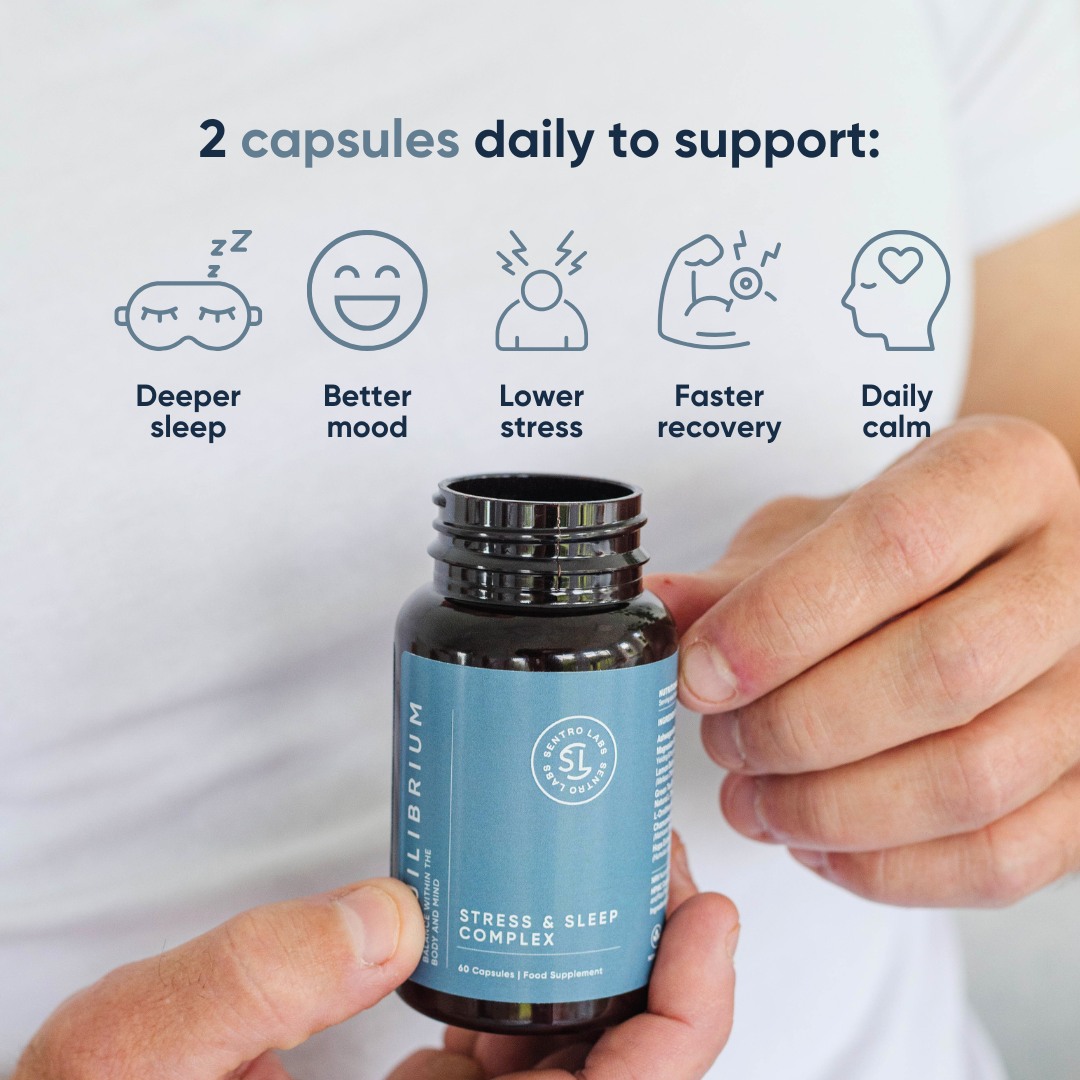

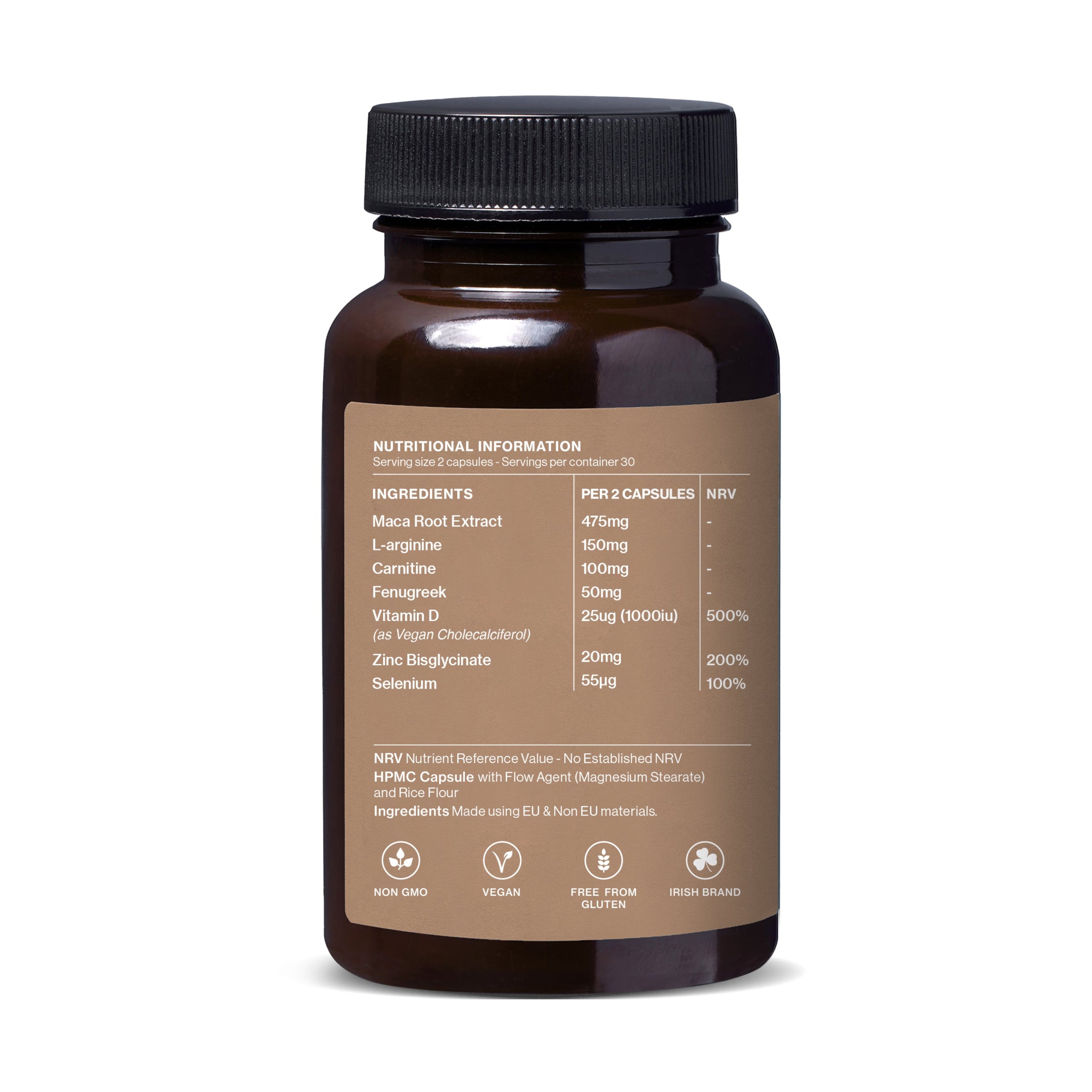


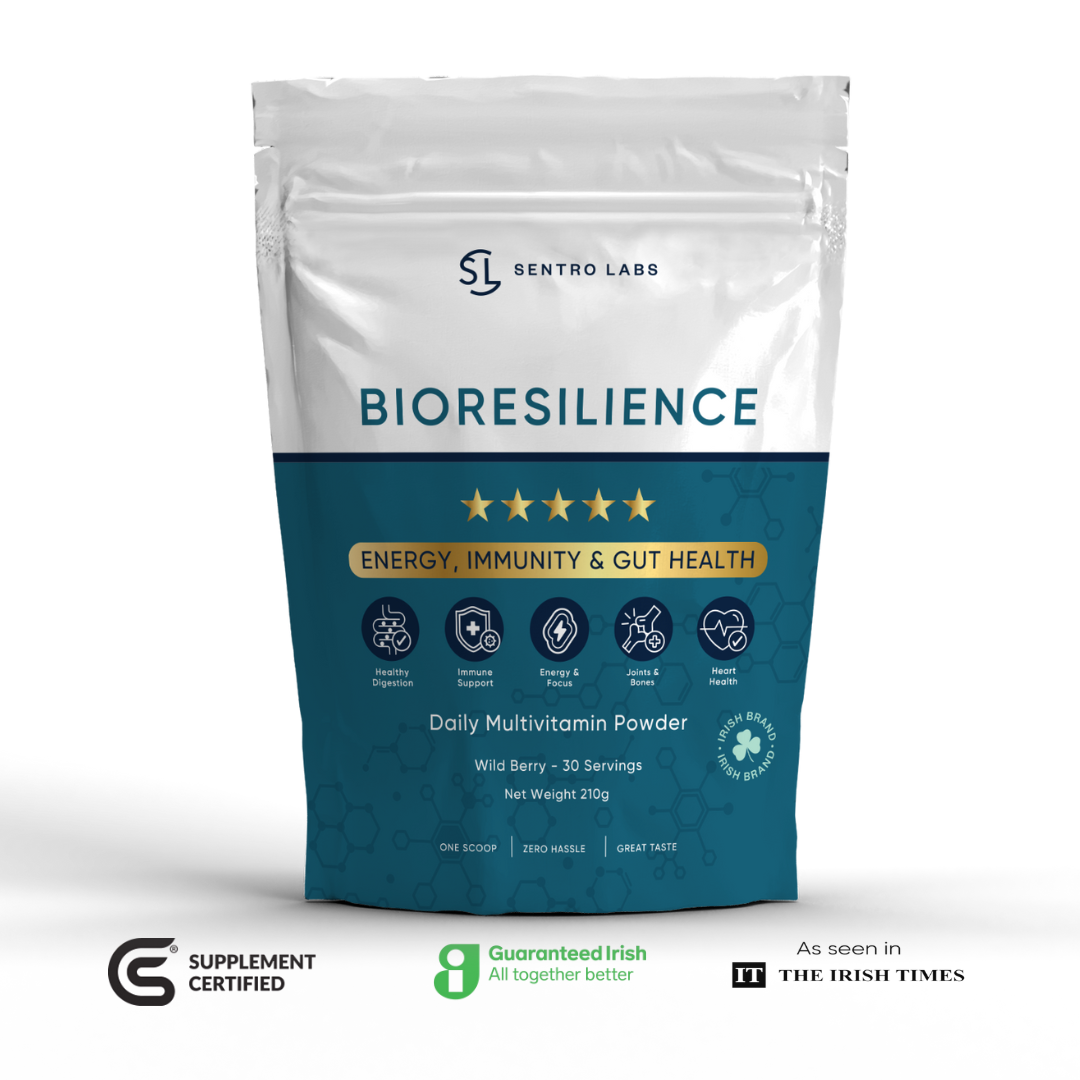




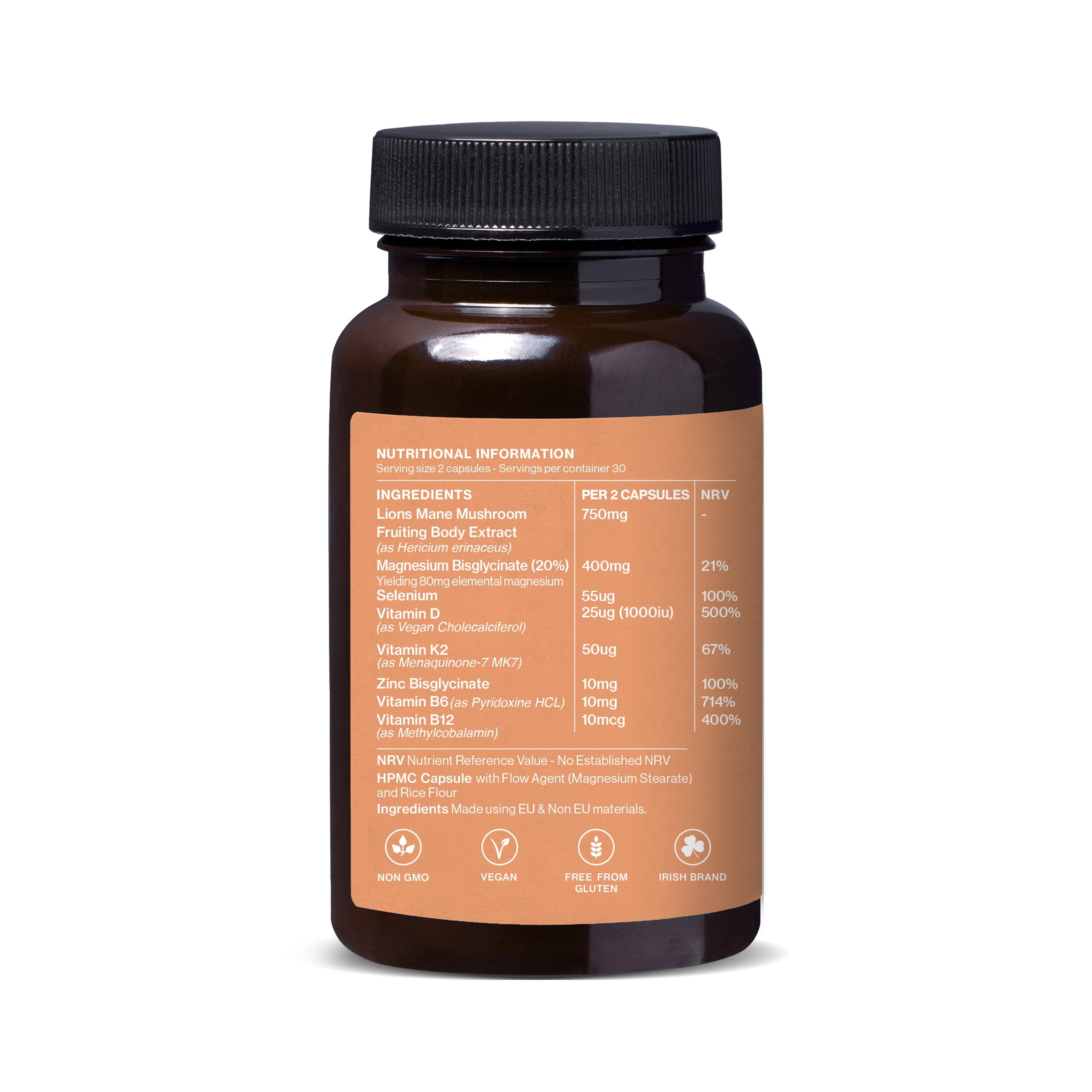




Share:
Phosphatidylserine Brain Benefits: Lifting the Fog
Unveiling the Benefits of Bacopa Monnieri for Men